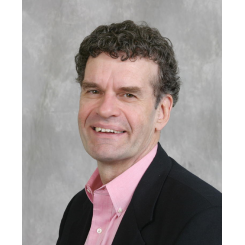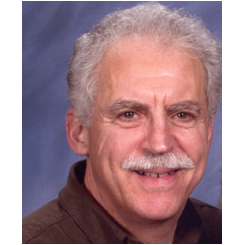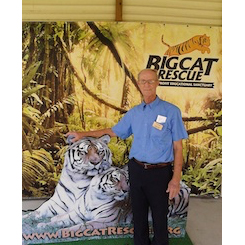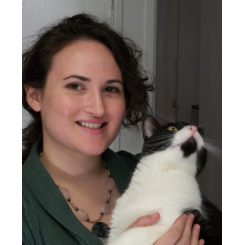Why “Emerson” Consulting Group?
An excerpt from The Expert’s Edge by Ken Lizotte (McGraw-Hill)
We named our firm after Ralph Waldo Emerson, not out of mere devotion to his memory nor because we are situated in the same town as was he. Instead, Emerson, though born way back in 1803, quite simply embodies our notion of thoughtleading. Let’s look at why.
In addition to Waldo, one could of course thumb through history and uncover many “thought pioneers” whose flames lit candles and even bonfires that caused their thoughtleading concepts to burst forth with heat and blinding light. Consider Aristotle, Socrates, and Plato; consider Voltaire, Galileo, and John Locke; consider Ben Franklin, Thomas Jefferson, and Sam Adams; consider Joan of Arc; consider Confucius; consider Marie Curie, Albert Einstein, Thomas Edison, and Alexander Graham Bell.
Thousands of gigantic volumes would be needed to adequately recount the activities of all these thoughtleaders, or even to just list all their names. But their own fears and mad thoughts and insane experiments have given us a legacy. Most of them were not even business types, yet their thoughtleading has paved the way for our own contrarian states of mind.
Consider Emerson as just one example. Though not a businessman per se, Ralph Waldo Emerson’s life practices have laid the foundation for today’s business thoughtleading way of life. Any business thoughtleader today, any expert seeking the expert’s edge, would do well to adopt a typical Emerson weekly schedule.
World-renowned in the mid-nineteenth century for his essays and books, Emerson’s stature as a leading thoughtleader of his day was quite secure. In addition to buying and reading such books and essays as Nature, Self-Reliance, and The Law of Compensation, many of his fans thought nothing of embarking on a journey of many hours or days to make their way to Concord, Massachusetts, and drop in to see him. The present-day Concord Museum offers a rich account of a band of Harvard students who trekked out from Cambridge, Massachusetts, some 20 miles away, in a blinding snowstorm to pay an uninvited visit to the “Sage of Concord” and bask in his presence, asking him about subjects that were not covered fully in his books. And Emerson gracefully welcomed them to his hearth and spent the evening with them in study and discussion.
In much the same way, Emerson often traveled to the homes of his thoughtleader contemporaries, although it’s likely that he let them know he was coming! In that same Cambridge lived Henry Wadsworth Longfellow, whom Emerson communicated with (by letters) frequently and knew well. A thoughtleader in his own right, Longfellow also networked with thoughtleader comrades of the day, joining Emerson, for example, at the Parker Hotel in Boston on many Saturdays for what they all called the “Saturday Club,” a no-holds-barred all-day philosophy fest frequented by a conclave of Victorian Age Boston deep thinkers. Regulars included Bronson Alcott (Louisa May’s dad), Nathanial Hawthorne, Oliver Wendell Holmes, and the esteemed poet James Russell Lowell.
But the sessions offered more than philosophical debates. There was also time for brainstorming literary ideas, passing on the names of good (and bad) book publishers, sharing advice on finances and commerce, and supporting one another in their quest to resolve obstacles, fears, and dilemmas. Presumably, this helped all of them get and stay successful in their various endeavors, and it shows how little professional life has changed in 160 years. Today we are told to network, network, network and to join professional groups and seek out advice and support. Critical advice then and now.
By the same token, top thoughtleaders generations ago sought out the expert’s edge via peer interaction and networking, as well as other thoughtleading actions. Emerson’s writing, for example, though it was the foundation of his fame, was not the sole focus of his day-to-day work, primarily because writing alone, as is still frequently true today, could not financially support him. So for four to six months out of each year he hit the road, by stagecoach or the newfangled train, to tour America’s cities, towns, and villages and speak at their lyceums and meeting halls. Adding this public speaking pillar of thoughtleading to his writing and networking, he presented his ideas in person, educating his audiences and fans, debating with them, provoking them, even unsettling them. In this way, Emerson made enough income to support himself and his family, and to allow him to spend the remaining months of each year developing his thoughtleading ideas.
What else did it do? Each lyceum visit, each carefully constructed and precisely delivered lecture, each rousing debate with a cantankerous farmer or feisty village highbrow helped him refine his own ideas as well expand the world’s knowledge of him. His talks made his books sell, got his essays read, and spurred word of mouth the next day at the water cooler (or more accurately, in Emerson’s day, the horse troughs).
If Emerson’s hope was that his beloved writing would expand thinking and knowledge and the general consciousness, his speaking pushed that goal 10 paces ahead and kept it moving. For the same reasons, to achieve a similar expert’s edge, today’s thoughtleaders must activate the same one-two punch of publishing and speaking for both personal and business advantage. The process of thoughtleading is organic: as we see with the thoughtleaders of today like Gary Hamel, Tom Friedman, Suzy Orman, Tom Peters, Rosabeth Moss Kanter and many more, Emerson’s propensity to think, write, speak, and network served him and those who learned from him on many fronts. Done in this way, thoughtleading serves all who incorporate it into their natural operational lives so that ideas can be germinated, grown, and harvested for the benefit of both those who reap and those who sow.
Enjoy this seasonally-appropriate (especially for those of us buried in New England) poem penned by Ralph Waldo Emerson himself: The Snow-Storm).
Why Not Thoreau Though?
Those of you who know your transcendentalists may be wondering why I’m making such a big deal about Ralph Waldo Emerson and ignoring his even better-known contemporary Henry David Thoreau. Well, that’s a fair question that’s worth exploring.
Although Emerson is quoted ubiquitously these 150-plus years later, the same can be said of Thoreau. Certainly a case could be made that Thoreau’s impact as a thoughtleader has been, over this period of time, even more pronounced and far-reaching than Emerson’s. After all, his writings on civil disobedience influenced both Gandhi and Martin Luther King and literally millions of others throughout the latter nineteenth century, the twentieth, and now the twenty-first.
Thoreau’s epic two years, two months, and two days in a small cabin that he built with his own hands (on land donated by Emerson, by the way) on the shore of Walden Pond is still hailed as possibly the prime inspiration for such popular uprisings as the environmental movement, the back-to-the-land movement, the hippie movement, the human potential movement, conservation, anti-materialism, and vegetarianism. Moreover, Thoreau did write about and speak out on such social-political issues of the day as slavery (quite against it), the Mexican War (also against), the increasingly hectic pace of day-to-day life (against), and technology (those loud, polluting steam engines gave him the willies).
Unquestionably Thoreau was a thoughtleader, and one whose impact is still being felt in resounding tones all over our globe. But where Thoreau differs from Emerson is in his dedication to personal independence, i.e., to going his own way. Not insignificantly, he was not particularly a lover of society either.
Though he did mix with Emerson’s family, with the Alcotts, and with his own (actually very close) family, in the end all the supper parties, odd jobs, lecturing, and attendance at speeches at the Concord Lyceum took a backseat to his own self. He loved to amble around Walden Woods, canoe down the Concord and Merrimac Rivers, trek off to Mt. Katahdin in Maine, tramp over the windswept sand dunes of Cape Cod, or make an “excursion” to Quebec, the Great Lakes, Philadelphia, or even New York City. Sometimes his brother went with him. Most times, though, he went his way alone.
It would thus be fair to say that Thoreau was not nearly the dedicated networker that Emerson was, nor did he care much for either career or business. Other than a few years when he worked at his family’s pencil factory, he rarely showed much ambition for conventional work. So yes, although he surely was a grand thoughtleader, and quite an impactful one at that, Emerson is the better model for our purposes. It was Emerson who could find value in integrating his thoughtleading actions with professional goals for himself— just as most of us attempt to do today.



























